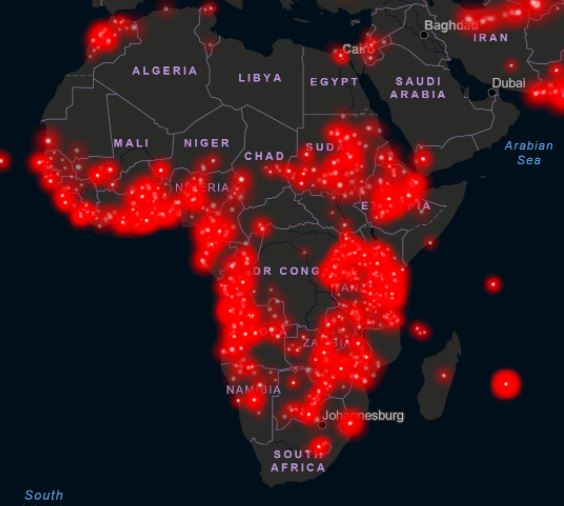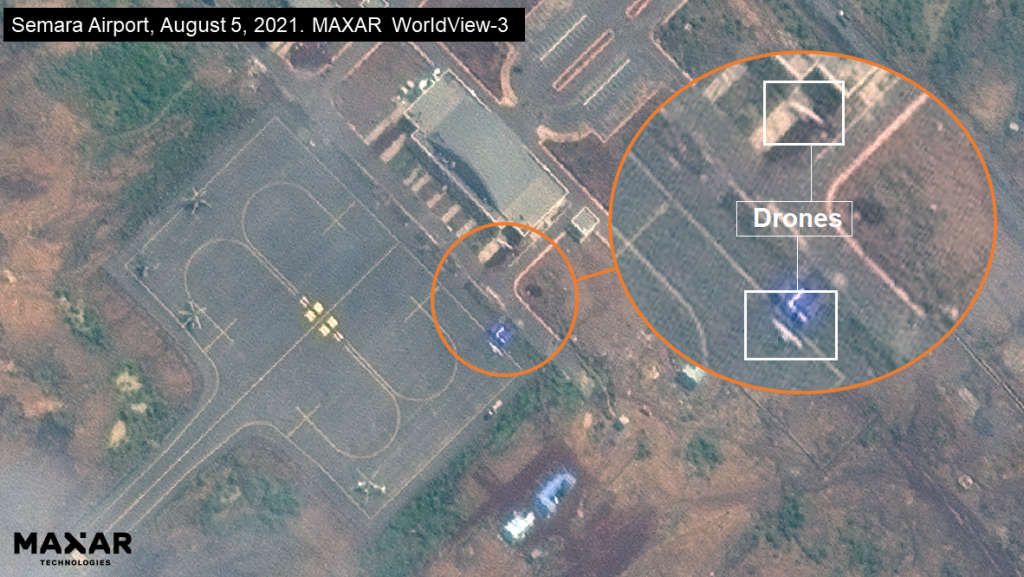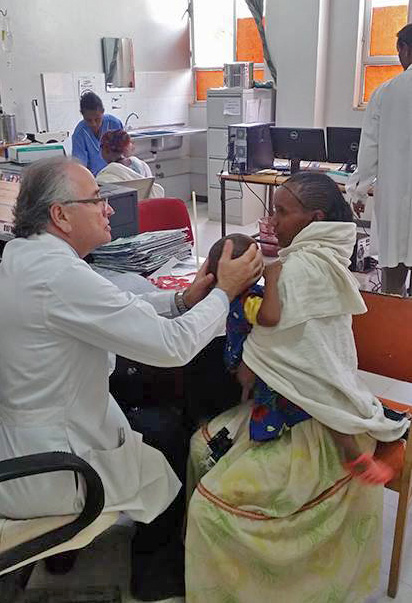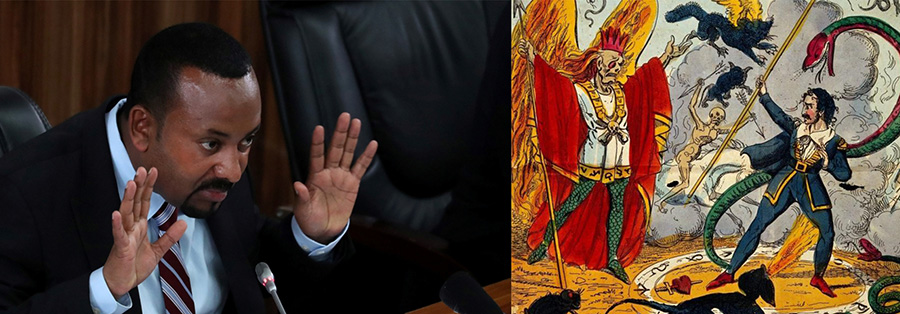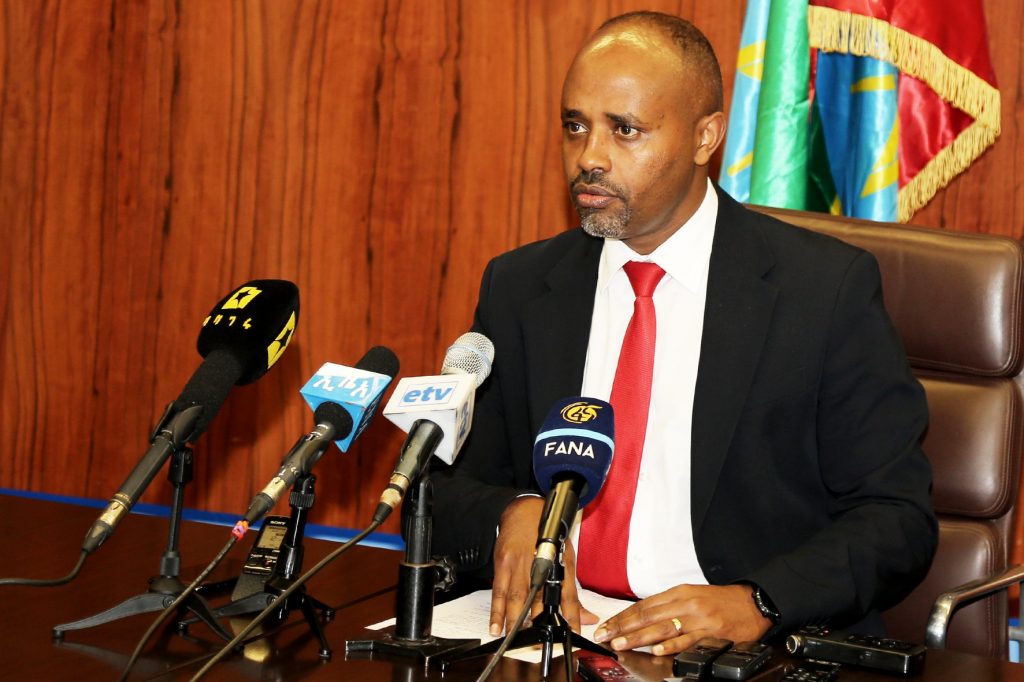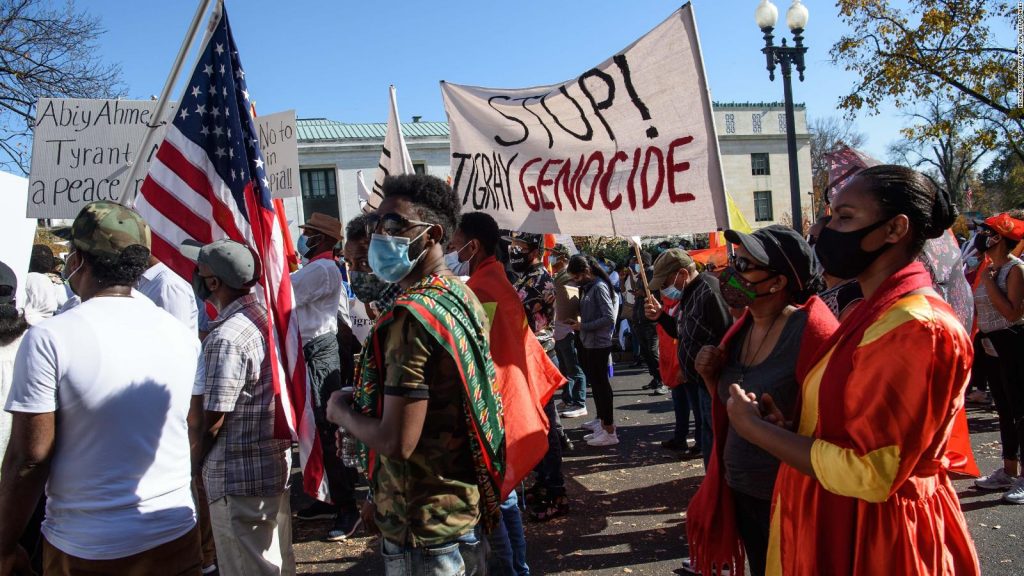
Ethiopian Orthodox Church clergy and their Evangelical allies supporting Abiy Ahmed’s policy of no negotiation and deprivation of human needs to deal with the Tigray are blasphemous to Donatism a unique theological tenet of the Ethiopian Orthodox Church. The conduct, preaching, and speeches made to members of the United States Congress as well as the Ethiopian public that the Tigray need to be wiped out and no peace talks should be held is a severe violation of the Donatist principle espoused for hundreds of years.
Since early in its development, the Ethiopian Orthodox Church has strongly held valid that the clergy must be a church of “saints not sinners”. Church leaders had to live their lives everyday following the Biblical teachings of love, charity, sacrifice, forgiveness, loving both neighbor and enemy, and avoiding hate and violence. Donatists opposed the idea of joining church and state as noted in the book of Samuel in the Old Testament because leaders of men tend to become corrupt and sinful. The Church had an imperial relationship to rulers but careful in how it advised. Similarly the Church had a long history of co-existence with differing faiths. Unfortunately as the Church moved somewhat to Amhara in last two centuries it did show some signs of Calvinist pre-selection where Cushitic Southern Ethiopians were not seen as equals allowing their enslavement. There are also some issues of Apostolic succession in the Amharic Synods of the Ethiopian Orthodox Church as they cannot clearly trace to Saint Peter through the 5th century Syrian missionaries as do the Tigray. This is especially noted for Synods in the foreign countries which has lead to current divisions within the Ethiopian Orthodox Church.
Abune Mathias, the recognized head of the Ethiopian Orthodox Church by proper Apostolic succession, has been held in house arrest under Abiy Ahmed. He was prohibited from communication to the world until taped interviews where smuggled out of Ethiopia. He has decried the Tigray Genocide as unjustified and evil.
The Ethiopian Orthodox Church origins begin in the 4th century CE when the Axumite King in what is now Tigray was converted from Judaism to Christianity by Frumentius a Syrian Christian monk who also followed Jewish Law. Frumentius and his brother Aedesius were shipwrecked and became prominent advisors to the Axum royal family leading to Ezana’s baptism. Judaism had come to Axum many centuries before following the visit of the Sabian Queen Sheba to Israel who subsequently bore the son of King Solomon. There is also the Biblical story of the Ethiopian enuch (royal official) who on a pilgrimage to Jerusalem met Saint Philip who explained that Jesus had come as prophesized in the Old Testament.
The Ethiopian Orthodox Church developed with distinct theological differences from the Byzantine Eastern Orthodox Church and the Roman Catholic Church. Syrian Christian missionaries who preserved many Jewish traditions such as kosher diet spread their message throughout what is now Northern Ethiopia. No contact occurred with the Roman Church for almost 800 years isolating it from that influence. While Church fathers from Northern Africa and Alexandria such as St. Augustine as well as those from the Byzantium had influence in the Ethiopian Church it still developed its own way. Sometimes the church is referred to as Tewahedo which refers to the concept that Jesus God and human parts are indivisibly mixed. Some of its most recognized saints are lesser known or not clearly recognized in the West. The story of the Axumite empire in the Negus became a part of their religious tradition.
However one of the most important differences and one that really characterized the Tewahedo Church is Donatism. Donatus Magnus was North African Bishop who believed that for clergy to have the power to lead their flock and celebrate the Eucharist they had to live perfect lives. Otherwise their prayers, sermons, blessings, granting of forgiveness, and preparation and celebration of the Eucharist would be rendered invalid. Whilst prominent church father, St. Augustine disagreed as did the Roman Church, this principle has remained a pillar of Tewahedo through today.


